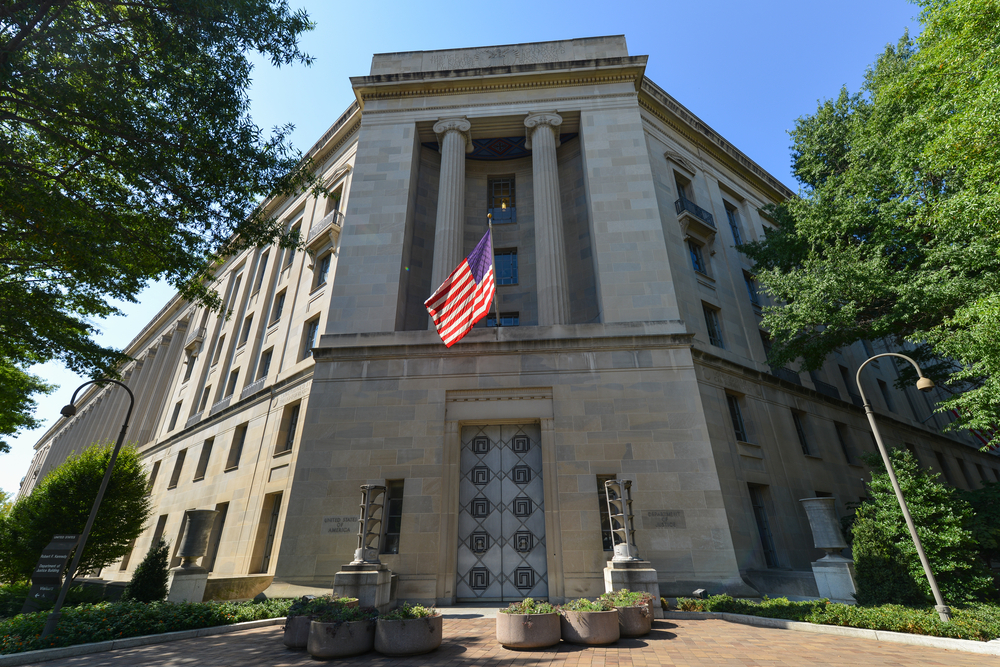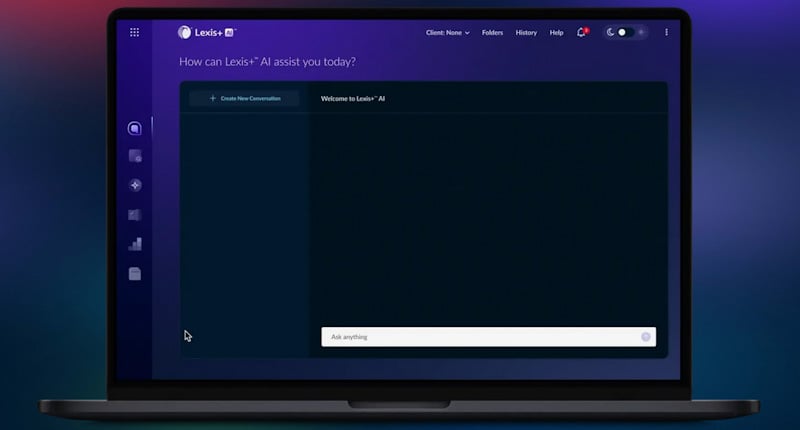DOJ sues to block Texas abortion law, cites conflict with federal constitutional duties

The Department of Justice building in Washington, D.C. Photo from Shutterstock.
The U.S. Department of Justice sued the state of Texas on Thursday in a bid to block its law that bans abortions at about six weeks of pregnancy.
U.S. Attorney General Merrick Garland announced the filing of the lawsuit in a press conference, report the New York Times, the Washington Post and CNN.
The Texas law, known as SB 8, authorizes private citizens to file lawsuits against abortion providers and others who knowingly help pregnant women violate the law. The measure bans abortions after a fetal heartbeat is detected—which is at about six weeks—even in cases of rape and incest.
The lawsuit filed in federal court in Austin, Texas, says the ban unconstitutionally conflicts with the statutory and constitutional responsibilities of the federal government.
Specifically, the DOJ lawsuit says, SB 8 exposes federal workers and grantees to liability for carrying out their federal obligations to provide access to abortion-related services to people in the care and custody of federal agencies. The law also interferes with federal contracts and grants to providers that provide abortion-related services, the suit says.
The U.S. Department of Labor’s Job Corps Program, for example, operates four centers in Texas. Job Corps Program contractors must provide abortion-related services under government contracts, the suit says. Another example cited in the suit: The U.S. Bureau of Prisons has an obligation to provide abortions for Texas inmates.
In addition, the suit says, states that participate in the Medicaid program must cover certain medically necessary procedures, including abortions for pregnancies arising from rape or incest.
The suit says SB 8 violates the 14th Amendment, as elucidated in Roe v. Wade, by depriving women of the right to an abortion before viability. As a result, the law violates the supremacy clause, and it is preempted by federal law, the suit says. SB 8 also regulates the activities of the federal government and its contractors, violating the federal government’s intergovernmental immunity, the suit says.
The U.S. Supreme Court turned down an emergency request to block the law last week, citing “complex” and “novel” procedural questions.
Texas is not charged with enforcing the law. The provision switching enforcement to citizen plaintiffs appears to be intended to stop abortion providers from suing the state in federal court to block the law, according to prior media coverage. In the suit before the Supreme Court, judges and court clerks were named as defendants.
Garland referred to the issue in the press conference. The law’s “unprecedented” design, he said, seeks “to prevent women from exercising their constitutional rights by thwarting judicial review for as long as possible.”
The lawsuit, however, says the federal government “has the authority and responsibility to ensure that Texas cannot evade its obligations under the Constitution.”
See also:
ABAJournal.com: “How could the DOJ counter Texas abortion restrictions? Law prof suggests prosecution”
ABAJournal.com: “Abortion providers ask Supreme Court to block Texas heartbeat law from taking effect”



